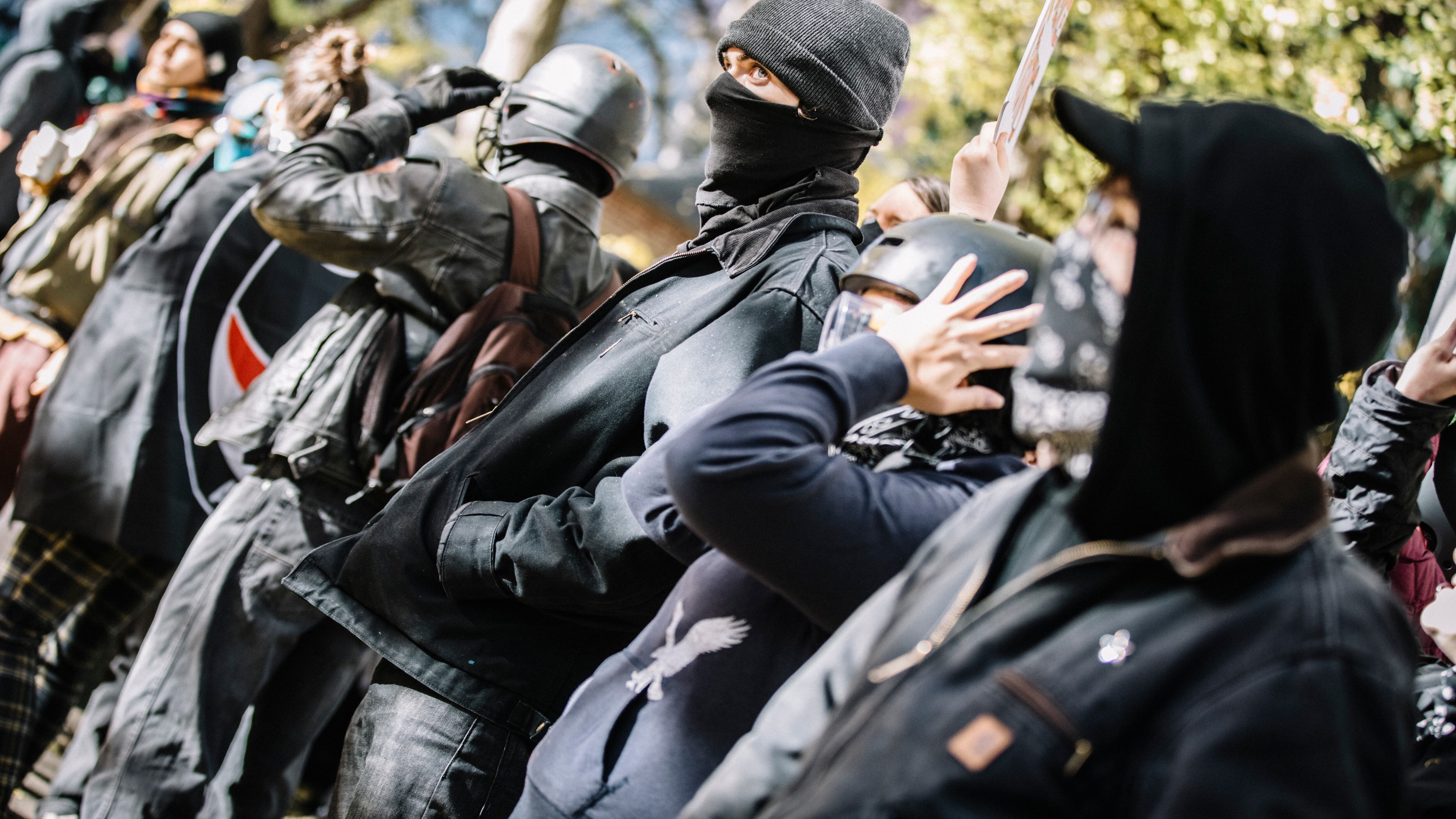Portland Police Chief Jami Resch announced April 10 that the bureau is directing police officers and other employees to wear face coverings when they cannot maintain 6 feet of physical distance—including when making arrests.
The bureau said in a press release that depending on what is appropriate for the situation, officers will wear one of four coverings: cloth face masks, surgical masks, N95 respirators or air purifying respirators, which cover the entire face.
Officers will wear masks when going out on calls and when they're in precincts or in a vehicle with another person. "When officers are placing someone under arrest, if feasible, bureau members are required to wear gloves and one of the mask options," the bureau announcement says.
That decision is even more striking because Portland police brass spent much of the past three years looking askance at leftist protesters who wore masks to protests. Former Police Chief Danielle Outlaw even advocated for a ban on masks at demonstrations—saying they encouraged anonymous people to commit acts they wouldn't if people could see their faces.
The current chief, Resch, says the pandemic has changed the context of face coverings, for officers and others.
"Prior to this public health crisis, a person [in a mask] was understandably viewed with suspicion. Today, we are in a different place and the context for wearing a mask is very different," Resch said in a video posted April 9. "Our focus will continue to be on illegal behavior and not face coverings."
The decision follows new recommendations issued by the U.S. Centers for Disease Control and Prevention on April 3 that all Americans should now wear face coverings when in public.

